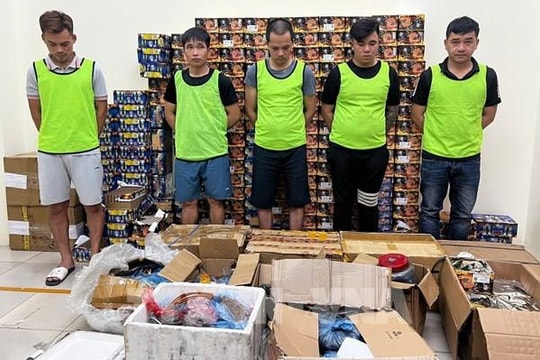Vietnamese bride trafficking to China on American newspapers
In a series of reports on human trafficking in the world, the American news agency CNN published an article about the trafficking of Vietnamese women to China as wives or prostitutes.
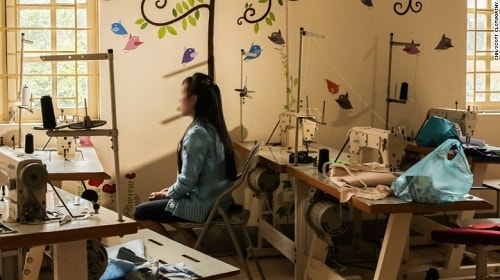 |
A Vietnamese girl escapes from human traffickers after being taken to China. Photo: CNN |
"When I woke up, I didn't know I was in China," Lan recalled that fateful night. At that time, she was studying for her university entrance exam in a northern province of Vietnam, when a friend she met online invited her out to dinner. When Lan felt tired and wanted to go home, the group of friends asked her to stay to talk and drink.
The next thing Lan knew, she was being taken to the Chinese border.
"At that time, I wanted to run away," Lan said. "There were many other girls in the car, but they were all guarded."
Villages along the Vietnam-China border are a hotbed for human traffickers. Girls as young as 13 are tricked or drugged, then transported across the border by boat, motorbike or car. Vietnamese girls are a valuable commodity in China, where the legacy of the one-child policy and a preference for sons has led to a serious imbalance in the sex ratio.
Simply put, Chinese men are "wife-starved."
Trafficked girls are either forced into marriage or forced into prostitution in China. Some escape and return to Vietnam with the help of local authorities. However, completely dismantling the trafficking network is not easy, as the rugged mountainous terrain in northern Vietnam makes border control very difficult.
"To marry a Chinese woman, Chinese men have to spend a huge amount of money," said Ha Thi Van Khanh, national project coordinator of the United Nations anti-trafficking organization in Vietnam.
Traditionally, Chinese men who want to marry Chinese women have to spend a lot of money on the wedding party, as well as buying a house for the couple to live in after marriage.
"That's why they bring women from neighboring countries, including Vietnam."
Diep Vuong is the founder of the Pacific Links Foundation (PLF), which provides shelter for victims of human trafficking and is based in Lao Cai city.
Diep said that "Vietnamese brides" are often expensive, fetching up to $3,000 because they are attractive to buyers due to the many cultural similarities between Vietnamese and Chinese people.
Nguyen was just 16 when her friend’s boyfriend drugged her and took her to China. She was pressured into marriage, but she refused. For three months, traffickers beat her, starved her, and threatened to kill her. Nguyen finally surrendered. She says her husband treated her well, but she will never stop missing her family in Vietnam.
"I longed to go home," Nguyen said. "I agreed to marry him, but I couldn't live with a stranger because I didn't love him."
When her mother-in-law realized Lan was not interested in the marriage, the family returned her to the traffickers and took back her money. Nguyen was forced to marry again.
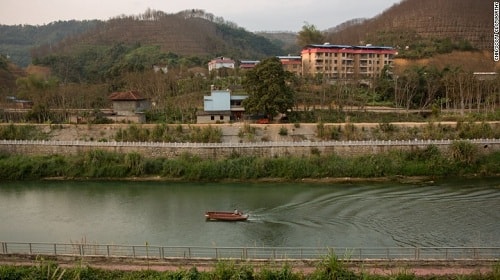 |
Human traffickers often take advantage of the river separating the Vietnam-China border to smuggle young Vietnamese girls into China. Photo: CNN |
Changing public awareness
Each girl usually stays at PLF for 2-3 years. During this time, they go to school or learn a trade such as embroidery, cooking, sewing, or farming. Living in an environment with many people in the same situation, PLF helps them stand on their own two feet and find jobs to support themselves.
Diep’s organization also works on outreach and educating the community to help prevent more girls from falling into the hands of traffickers. Once a month, a group of trafficking victims visits Bac Ha Market, the area’s central market where people go to buy food, fabrics, and poultry.
On market day, they would stand on stage, surrounded by hundreds of people, talking about what happened to them, happily answering questions from the public. When they asked people to share their knowledge about human trafficking, more than 20 people volunteered.
“I think changing perception is the only tool,” Diep said.
Ha, the UN official, agrees. She believes that the top priority is to change perceptions, especially in poor rural areas along the border. She says that reducing poverty is also a way to prevent women from going to China to find work. Traffickers often use this scam to lure victims to the border to earn money.
During the trip ofCNN toVietnam-China border, the Vietnamese government said police had just rescued five teenage girls who had been trafficked across the border. The girls, only 14 years old, said a neighbor in their village had promised them $600 a month if they went to work in China. They had not told their parents. The neighbor was arrested.
In many cases, Vietnamese police have been able to rescue victims taken to China, thanks to the cooperation of Chinese police. Nguyen Tuong Long, head of the Lao Cai province Social Evils Prevention Department, said that last year, the provincial government rescued and repatriated 109 Vietnamese victims.
"Thanks to the cooperation between the police of Vietnam and China, we found and dismantled the human trafficking ring," Mr. Nguyen said. "We found the victims deep inside the Chinese border, forced into prostitution in brothels."
Some said they were able to contact their families from China, but were unable to ask for police help because they did not know exactly where they were being held.
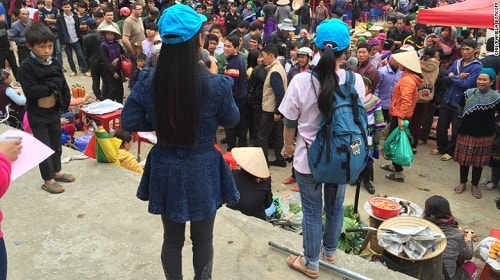 |
Two girls who were victims of human trafficking spread propaganda to people in Bac Ha market. Photo: CNN |
Lan and Nguyen were taken to the same town in China. After two years, they plotted their escape, taking a taxi to the local police station, fearful of being discovered by their husbands. The Chinese police investigated and sent them back to Vietnam.
They were free women, escaping forced marriages in China, but the price they paid was leaving their children behind in China. Lan said if she saw her child again, she would apologize for leaving him.
“I hope she will have a better future there,” Lan said. Both Lan and Nguyen said that teachers warned them about human trafficking when they were in school, but neither of them believed they would find themselves in this situation.
According to VNE

.jpg)
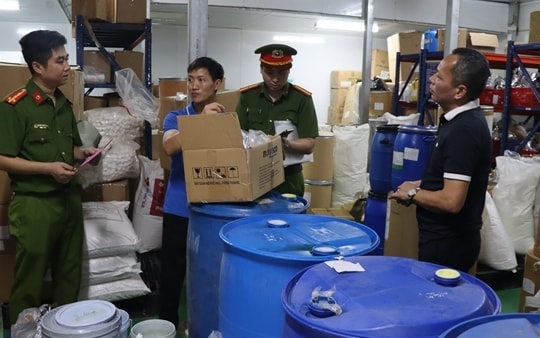

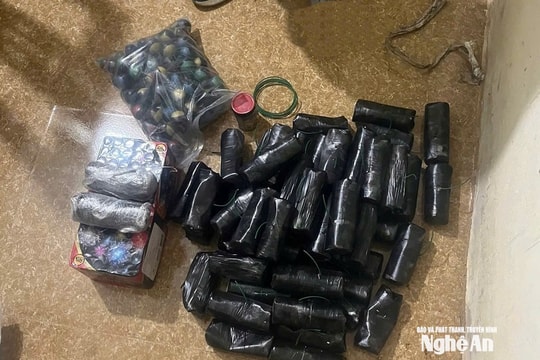
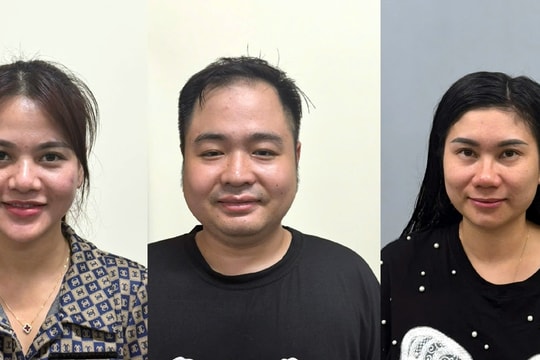
.jpg)
